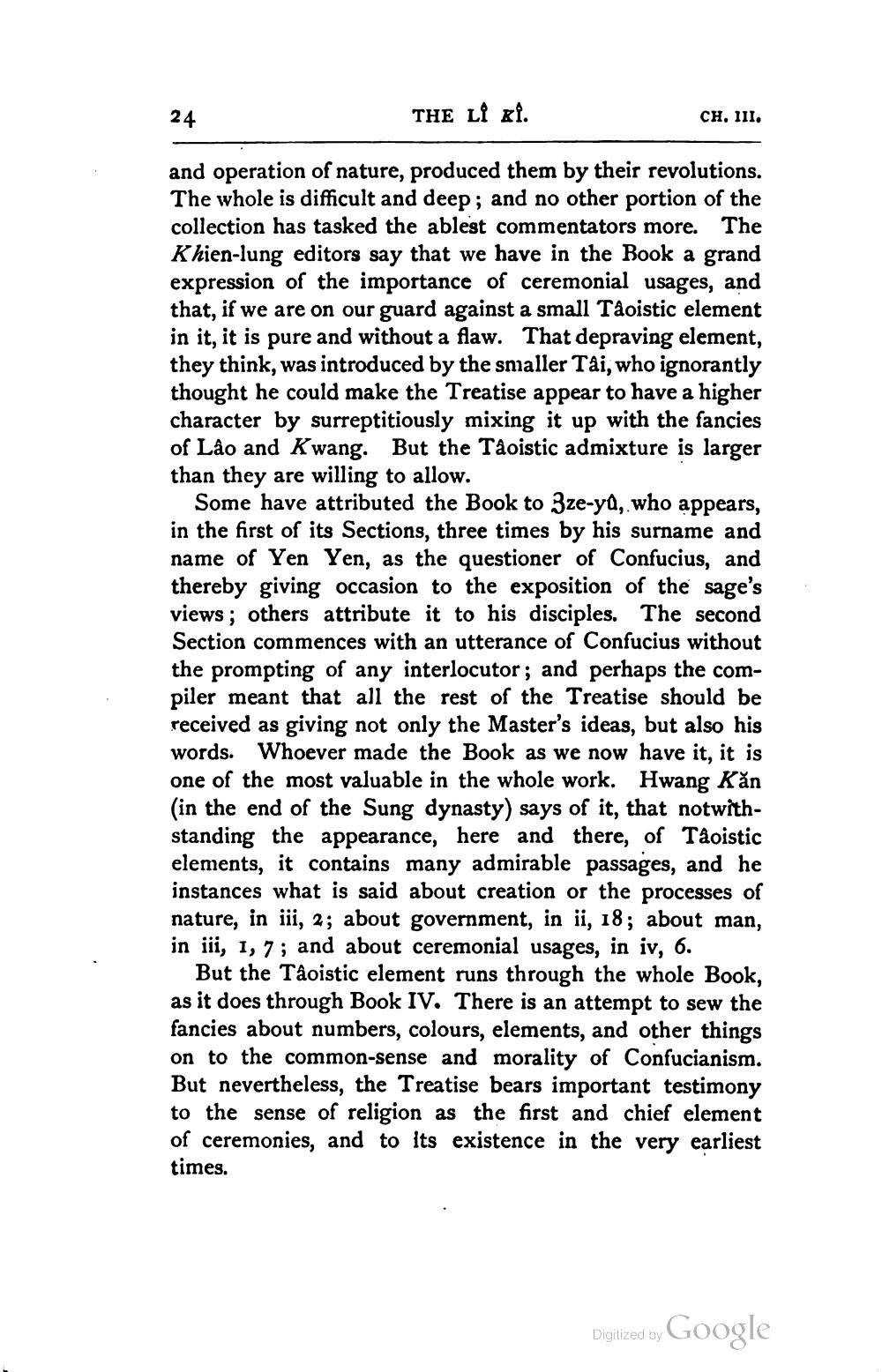________________
24
THE LÎ xi.
CH, III.
and operation of nature, produced them by their revolutions. The whole is difficult and deep; and no other portion of the collection has tasked the ablest commentators more. The Khien-lung editors say that we have in the Book a grand expression of the importance of ceremonial usages, and that, if we are on our guard against a small Taoistic element in it, it is pure and without a flaw. That depraving element, they think, was introduced by the smaller Tai, who ignorantly thought he could make the Treatise appear to have a higher character by surreptitiously mixing it up with the fancies of Lâo and Kwang. But the Taoistic admixture is larger than they are willing to allow.
Some have attributed the Book to Zze-ya, who appears, in the first of its Sections, three times by his surname and name of Yen Yen, as the questioner of Confucius, and thereby giving occasion to the exposition of the sage's views; others attribute it to his disciples. The second Section commences with an utterance of Confucius without the prompting of any interlocutor; and perhaps the compiler meant that all the rest of the Treatise should be received as giving not only the Master's ideas, but also his words. Whoever made the Book as we now have it, it is one of the most valuable in the whole work. Hwang Kăn (in the end of the Sung dynasty) says of it, that notwithstanding the appearance, here and there, of Taoistic elements, it contains many admirable passages, and he instances what is said about creation or the processes of nature, in iii, 2; about government, in ii, 18; about man, in iii, 1, 7; and about ceremonial usages, in iv, 6.
But the Taoistic element runs through the whole Book, as it does through Book IV. There is an attempt to sew the fancies about numbers, colours, elements, and other things on to the common-sense and morality of Confucianism. But nevertheless, the Treatise bears important testimony to the sense of religion as the first and chief element of ceremonies, and to its existence in the very earliest times.
Digitized by Google




